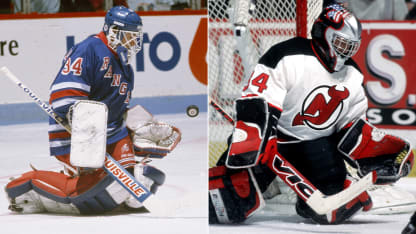Vanbiesbrouck is also hoping to build his own contender for the 2020 IIHF World Junior Championship as general manager of the United States. That process begins at the World Junior Summer Showcase this week at USA Hockey Arena, where Vanbiesbrouck is evaluating 44 invitees. He's expected to release a few players on Thursday.
However, Vanbiesbrouck said he's learned a few things about roster management since the setback last year when the United States lost 3-2 to Finland in the final of the 2019 WJC after Kakko scored the game-winning goal at 18:34 of the third period.
"I'm a fairly quick decision-maker, so I learned to be a little bit more patient," said Vanbiesbrouck, who is in his second season as GM of the U.S. National Junior Team and assistant executive director of hockey operations for USA Hockey. "It's a process and we want the process to be successful. It's not just in the result, because we were close to a great result. The dynamic of the team is so different, so you've got to be more patient."
In a wide-ranging interview with NHL.com, Vanbiesbrouck discusses the development of USA Hockey, the 2020 WJC, and the evolution of goaltending:
A record 17 players were selected from the USA Hockey National Team Development Program Under-18 team at the 2019 NHL Draft, including eight in the first round. What was going through your mind watching this happen at Rogers Arena in Vancouver?
"These were players being drafted at every position. Some of them weren't even on the radar, like defenseman Domenick Fensore (Carolina Hurricanes, No. 90). I'm sorry he didn't play in our USA Hockey All-American Prospects game in September 2018, I feel bad now for him. But you know, the fact is he got drafted pretty high for an undersized kid (5-foot-7, 151 pounds), but he brings it every night. When it actually plays out in front of you, you always want more. It's just one of those things that you always want more of so hopefully you can follow it up."


















